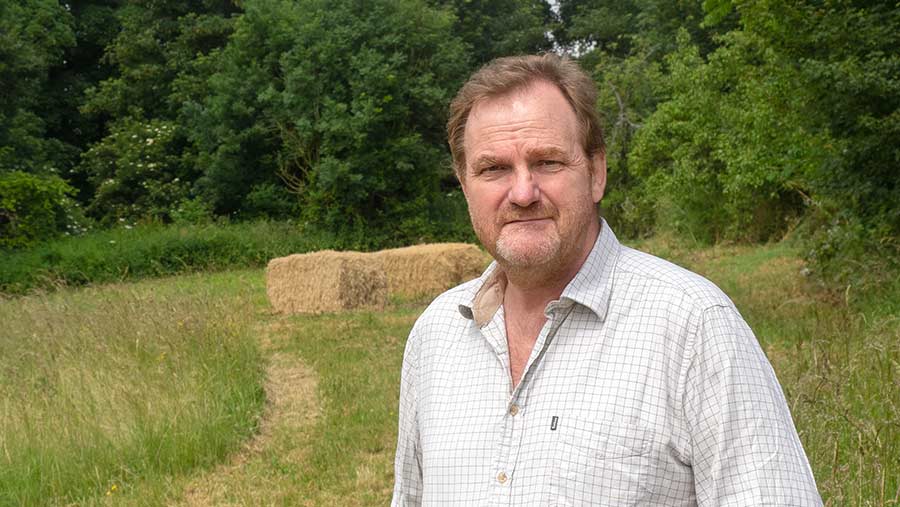Flindt on Friday: Guilty confession – I’m loving the drought
 © Kathy Horniblow
© Kathy Horniblow I have a terrible secret. It’s keeping me awake at night. I’m struggling to keep it to myself, but I like to think that here, tucked away inside the back cover, I’m among friends, and can ’fess up, as young people say.
My shocking guilty confession is quite simple: I am just loving this drought.
It helps, of course, that my farm thrives in this weather. Mother Nature’s invisible subsoiler is hard at work on the clay soil, undoing the damage from a couple of wet winters.
We managed to make a fabulous field of “three turn/three day” hay, and were thrilled to get it all baled late in a rare cool evening – always reassuring as it gets piled up carefully in the back of the barn.
See also: Doorstep drama as RPA interrupts TV binge
The nice man doing my spraying for me has come and gone at will, with no worries about pesky showers or antisocial winds.
Climate Change Drought Bingo
I’m having a great game of Climate Change Drought Bingo, waiting for the experts to tell us how this drought is definitely down to global warming, unlike all the other droughts of the past couple of centuries.
True, the few fields with chalky topsoil we have are beginning to look a bit pale, but we live in hope that the clay-sown crops managed to get their deepest roots down through the heavy tops and into the Hampshire aquifers in time for the dry spell.
We’ll know soon enough – sometimes the clay land pays you back for all the slippery winters. And the wild bird strips sown into what we thought were nice moist seed-beds mid-May are still barren – except for the blasted thistles.
But for fellow arable farmers on the light land and gravel farms, things are far worse. Crops are being seriously affected.
So the news is full of reduced yields due to the dry spell. But the reaction always baffles me. Farm pundits and experts talks of “fears” of reduced yields.
Yields worries? Not me
They talk of the fact that harvest might be quite severely down as if it’s something to be worried about. The best thing to happen to the world of arable farming would be a shortage of what we make.
A whole generation of pundits, opinion formers and politicians has grown up utterly convinced that the grain will flow, come what may. If not from these shores, then from elsewhere, as it has for the past couple of decades.
We should (we are told) “rewild”, grow grass for rent-twisting AD plants, go organic, turn the countryside into a public playpen. Well, this year, Mother Nature isn’t playing, and not just on these shores.
But turn forward from the semi-apocalyptic predictions of shortage and you find the prices – soaring into the £170 zone for feed wheat (as I write).
I reckon that, once again, the size of the heap in the barn multiplied by the price we eventually get for it will be about the same.
Parched pastures
Of course, this sort of optimism will not necessarily go down well with the livestock boys, struggling with parched pastures and barns empty of hay and straw.
Pointing out the long-term positive aspects of their not having any stock to sell might be somewhat hazardous. I might end up with a four-prong graip inserted where the hot summer sun hasn’t shone since my last trip to the proctologist.
So it’s probably best that I keep my quiet optimism to myself. If the dry weather continues, I’ll make all the right noises about the poor yields and the barn full of gramophone needles. But you’ll know what I’m really thinking.
